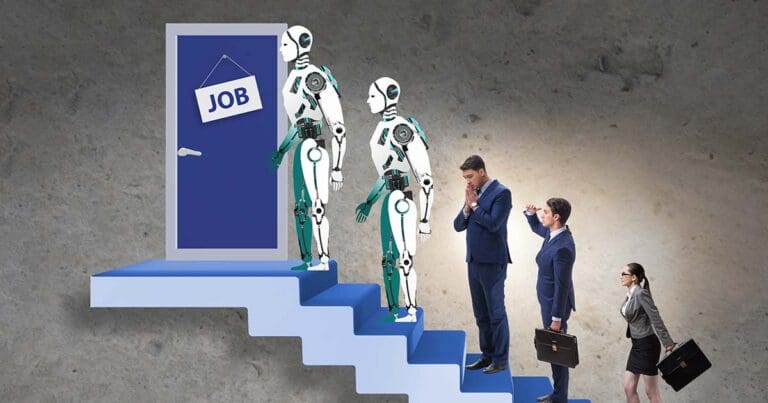Embracing the Creator Economy as a Career Path in Academia

In an era where innovation and digital prowess reign supreme, a new career path has emerged within the hallowed halls of academia – the Creator Economy.
No longer confined to traditional academic pursuits, students and universities alike are embracing the idea that creativity, influence, and entrepreneurial spirit can be cultivated and harnessed as a viable profession.
This paradigm shift is challenging the notion of what it means to have a successful career in academia as the creator economy gains traction and significance within the ever-evolving job market.
What is the creator economy?
The creator economy, also referred to as the passion economy, is a thriving career avenue for individuals possessing exceptional skills and talents. It involves leveraging social media platforms and online marketplaces to monetize content and transform personal passions into lucrative businesses.
In the past, academia has primarily focused on traditional professions such as law, medicine, and engineering.
However, with the advent of the creator economy, universities are now recognizing the value and potential of creative pursuits in today’s job market.
The rise of creator economy courses in universities
The rise of creator economy courses in universities can be tied back to aligning with Gen Z career aspirations, legitimizing the creator economy, and bridging the gap between talent and training.
Creator economy introduction into academia
Universities are introducing courses aimed at thoroughly exploring the Creator Economy, providing a comprehensive understanding for students interested in carving out their niche in this field.
These courses offer a blend of business acumen and creative skills – teaching students how to create engaging content and monetize their creations effectively.
As such, academic institutions are equipping the next generation of content creators with the necessary tools to build sustainable businesses out of their passions and talents.
Legitimizing the creator economy in academia
Academia’s adoption of the creator economy is playing a profound role in legitimizing this industry, thereby challenging long-standing perceptions of what constitutes a ‘real’ job.
This shift validates the potential of creative pursuits and paves the way for a broader acceptance of non-traditional career paths.
With the creator economy projected to grow exponentially, students are likely to be presented with a wider array of career choices, making the act of turning passion into a profession a mainstream, rather than an alternative, choice.
Aligning with Gen Z’s career aspirations
The creator economy aligns seamlessly with Generation Z’s aspiration for autonomy, flexibility, and creativity in their careers.
This generation, brought up with technology at their fingertips, is keenly aware of the opportunities to monetize their interests or skills through content creation and digital entrepreneurship.
A recent survey by Morning Consult found that 57% of Gen Zers in America become an influencer if they were given the chance, a clear testament to their attraction towards the creator economy.
Influencer marketing and business education
Lia Haberman, adjunct professor at UCLA and former Vice President of Audience Development at E! Online, provides insight into the rising focus on influencer marketing and the creator economy in business and marketing curricula.
She emphasizes the critical role of formal education in areas such as personal branding and media partnerships – skills often overlooked but integral to success within the creator economy.
Haberman’s views underline that the rapidly evolving digital landscape necessitates the integration of these topics into academic discourse, thereby equipping future content creators with a competitive edge in the marketplace.
Bridging the gap between talent and training
While university courses can equip students with the technical skills and business acumen necessary for the creator economy, they cannot necessarily impart the innate talent and charisma often required for success in this sphere.
However, they can support the cultivation of these traits by fostering a conducive learning environment and providing opportunities for students to explore their creativity and unique voices.
Furthermore, the value of formal training lies in its ability to impart essential skills such as strategic planning, marketing, and analytics, which are crucial for content creators to effectively monetize their work, reach a wider audience, and sustain their creativity as a feasible career.
Implications of the creator economy on the job market
Implications of the creator economy on the job market include formalization of creator economy education, the growing importance of practical skills, and the role staffing agencies will play.
Formalization of creator economy education
The formalization of creator economy education is set to significantly impact the job market by validating and promoting non-traditional career paths, therefore broadening the spectrum of opportunities available to job seekers.
It may also catalyze a shift in employer attitudes, leading to greater acceptance and recognition of skills honed in the creator economy and potentially influencing recruitment practices.
And, as more individuals become equipped with the necessary skills to thrive in the creator economy, we may see an upsurge in entrepreneurship and innovation, fueling economic growth and job creation in the digital sector.
Growing importance of practical skills
As the creator economy continues to grow, practical skills such as content creation, strategic marketing, and analytics are becoming increasingly valuable.
Networking, too, is playing a crucial role, aiding creators in establishing meaningful connections and partnerships within the industry.
Lastly, comprehensive industry knowledge, including understanding the latest trends and effective monetization strategies, is fundamental for creator economy participants to navigate and succeed in this dynamic digital realm.
The role staffing agencies will play in the creator economy
Staffing agencies will have a crucial role in the creator economy, leveraging their expertise to navigate this novel career landscape and match talent with the right opportunities.
They are well-positioned to understand the unique skills and talents that creators bring and can help connect these individuals with brands and companies seeking their specific expertise.
Furthermore, these agencies can provide creators with strategic career guidance and support while offering employers significant benefits.
By leveraging their expertise, employers can maximize the potential of their creative workforce and thrive in this burgeoning economy.
Top 5 skills needed to thrive in the creator economy
Skills needed to thrive in the creator economy include content creation, marketing and branding, analytics, networking, and adaptability and innovation.
Content creation
The ability to produce high-quality, engaging content is a fundamental skill for success in the creator economy.
This includes proficiency in various mediums such as written, visual, audio, and video content creation.
Moreover, creators must continuously innovate and adapt their styles to keep up with changing audience preferences.
Marketing and branding
Marketing and branding skills are vital for creators to promote their content and build a loyal following effectively.
This includes understanding target audiences, creating a unique brand identity, and utilizing various marketing strategies to grow one’s reach and engagement.
Analytics
Analytics skills are essential for creators to measure the success of their content and make data-driven decisions.
By tracking metrics such as views, engagement rates, and audience demographics, creators can optimize their content for maximum impact and profitability.
Networking
Networking skills are crucial in the creator economy to establish meaningful connections with brands, sponsors, and other creators.
Building a strong network can open doors to new opportunities and collaborations, further elevating one’s career in the digital space.
Adaptability and innovation
As the creator economy evolves rapidly, creators must possess adaptability and innovation skills to stay relevant and competitive.
This includes being open to new trends, platforms, and strategies while continuously experimenting and testing new ideas to engage their audience.
The future of the creator economy
The creator economy presents an exciting new frontier in the career landscape, one brimming with untapped potential and unbounded creativity.
The integration of creator economy principles into higher education curricula is paving the way for students to explore non-traditional career paths and acquire the skills necessary to thrive in this evolving digital domain.
Staffing agencies, in particular, are poised to serve as critical intermediaries between creators and businesses seeking their unique skills.
Employers are urged to harness the capabilities of these staffing agencies to adapt seamlessly to the growth of the creator economy sector and fully leverage the burgeoning talent pool.
Looking to hire top-tier Tech, Digital Marketing, or Creative Talent? We can help.
Every year, Mondo helps to fill over 2,000 open positions nationwide.
More articles about hiring and industry trends:
- Leadership Trends and Strategies for 2024
- Specialized AI Bots and the Evolution Beyond ChatGPT
- 24 Top In-Demand Tech and IT Jobs to Hire in 2024, with Salaries
- Fractional Executives & C-Suite Gig Work Shaping the Employment Landscape
- Harnessing the Power of Climate Tech to Drive Environmental Sustainability
- Staffing Strategies For Each Phase of the Business Cycle
- Key Roles to Get the Most Out of Your MarTech Stack
- Tapping the Gig Economy: When It Makes Sense to Hire Contractors
- How Executive Recruiters Ease Your Hiring Process
- What to Do When You Have Urgent Hiring Needs
- Generative AI & Its Impact on the Job Market: It’s Not All Bad News



